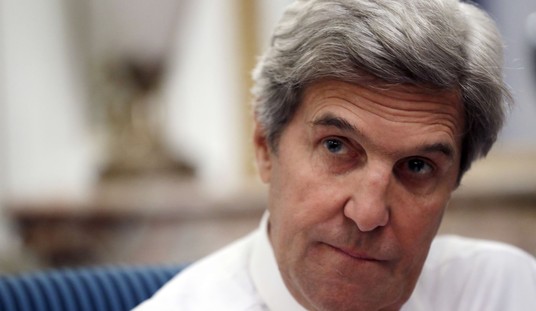Lack of trust in institutions, especially the media, is often blamed for the breakdown of Our Democracy. The decline in trust, according to some, is the result of rumor mongers, conspiracy theorists and paid misinformation and disinformation agents. If we trust our leaders, we will be united once again and the remembered Golden Age will return. But can you force the public to trust a source—for example, "the news media" or "our leaders"— even to save democracy?
Trust, like patronage, is normally produced by consumer experience unless restraint of trade compels patronage, aka "trust," on the public. But absent compulsion, trust in a source is ordinarily earned by satisfaction. One "trusts" sources that turn out to be true or at least are more frequently accurate than any alternative. There is nothing extraordinary in this.
Accuracy is usually the basis for judging workaday objects like gas gauges, weighing scales, radar systems, etc. It would be irrational not to trust the media if they were pretty accurate, yet rational to misgive them if they were not. You don't rely on inaccurate instruments or return to a bad cook for seconds. Ideally, you keep track of record systems to rate information sources—the way batting averages are compiled for players—so you know what or whom to rely on.
But many arguments for institutional trust proceed from a different premise: that credence is necessary for governance to work. Trust is the alternative to doubt because it is the mechanism through which obedience is granted to forestall something out there. Never mind if the institutions are accurate. Trust in them is a necessity in itself.
However, "unless you trust us, the wolf will come to eat you" is a different argument from "trust this device because it is 99 and 44/100 percent accurate"—and is in many ways inferior. Trust based on fear can never replace trust founded on accuracy. Accuracy is important because most productive people act in rational ignorance. They rely on doctors, instruments, experts, etc, to tell them what they themselves cannot economically know from first principles. We usually take the doctor's advice not because we like him or are of the same race, religion, or gender but, presumably, because he is right and we fear the consequences of being wrong.
But trust based on a fear of the out there is predicated on something altogether different: the dread of our fate should the familiar systems be overthrown. Unless we keep order, the monster outside will tear us apart. It is vague, but that only adds to the force because the creature offstage is always more terrifying than the man in the rubber suit.
Trusting trustworthy experts is convenient and economical because it allows us to delegate the thinking to others, freeing us to return to doing what we know best. Trust founded on accuracy is easily justified. But things are more uncertain when the expert bases his expertise on victimhood, symbolism, equity, or forestalling a menace. We fall back into a high-cost, low-trust society. We sniff, pinch, and bite everything to see if it's real. The reason DEI is so destructive is it replaces rational ignorance with politically correct ignorance.
Fortunately, we have a lot of technology to help us compile true batting averages. Blockchain, log files, archives, and GIT, to name a few. But these are mostly to be found in the more definite professions. In politics, you have the teleprompter, stealth edit, psyop, and gaslight. Generally, white magic rules in STEM, but black magic reigns supreme in the social domain. But technology is the servant of politics, and the day may soon come when the STEM and social domains become so intermeshed that "white and black magic" will battle for supremacy of gaining trust.
In the near future most people will see the world through devices. We already do this through our ubiquitous cell phones and computers, but these are merely the advanced guards of smart glasses, displays, and, ultimately, brain implants. We may never again view the world with our naked senses.
For some or all, our derived views, e.g., augmented reality, mediated reality, diminished reality, etc, must ultimately be based on a foundation called the "real environment" (RE)— the world as it actually is. For these, the rule should be to never lose track of or touch with RE. To them, trust must always be based on accuracy. But the political problem ideologues present is they don't philosophically believe RE even exists or, if it does, why it should not be overwritten entirely. For those, trust can be based on the need to keep the dream going.
The choice will affect how society develops. In the coming years, we will increasingly see RE through visualizations presented by devices, glasses, and brain implants mediated through the lenses of pre-processing, including AI. If one believes external reality forms the final basis of things, then you don't want your self-driving EV to run over someone in the RE just because he is not represented in your visualization or waking dream. You want your visualization to be consistent with RE, not randomly altered for ideological or political reasons.
But if the dream is the end in itself, then trust in the illusion is paramount. Can you force the public to trust a source—for example, "the news media" or "our leaders"—even to save democracy? Not only can you, but you should, the ideologues will say. On that depends the social order and the happiness of multitudes. You could be lying in a dank RE room surrounded by squalor and encrusted in filth. Would it matter if your senses imagined themselves bathed in luxury? Depart troublemaker, and let me sleep again—or how did Shakespeare's "Caliban" put it?
Be not afeard; the isle is full of noises,
Sounds and sweet airs, that give delight, and hurt not.
Sometimes a thousand twangling instruments
Will hum about mine ears; and sometime voices,
That, if I then had waked after long sleep,
Will make me sleep again: and then, in dreaming,
The clouds methought would open, and show riches
Ready to drop upon me; that, when I waked,
I cried to dream again.










